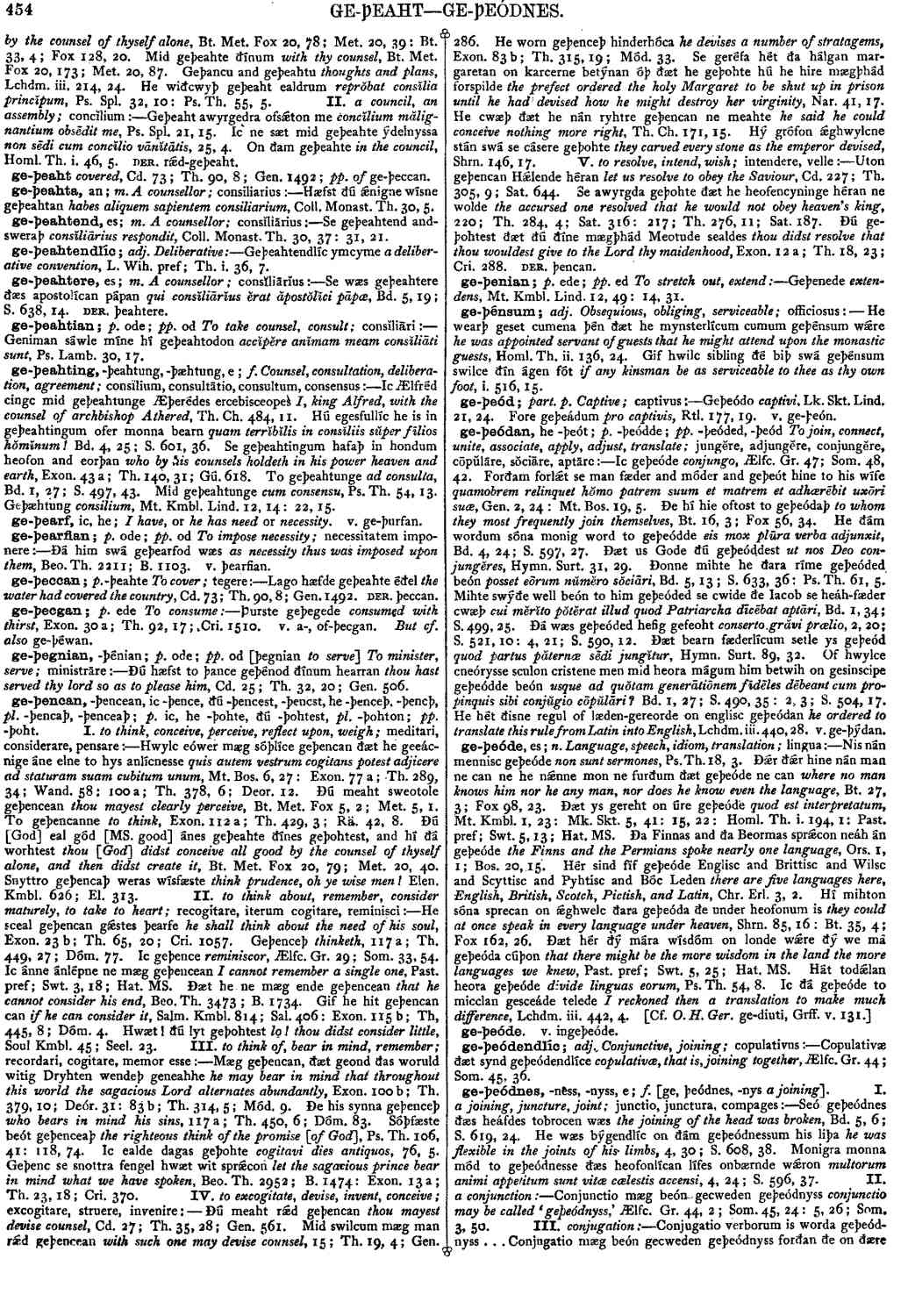ge-þeódan
- verb [ weak ]
-
Ic geþeóde
conjungo,
- Ælfc. Gr. 47; Som. 48, 42.
-
Forðam forlǽt se man fæder and móder and geþeót hine to his wífe
quamobrem relinquet hŏmo patrem suum et matrem et adhærēbit uxōri suæ,
- Gen. 2, 24: Mt. Bos. 19, 5.
-
Ðe hí hie oftost to geþeódaþ
to whom they most frequently join themselves,
- Bt. 16, 3; Fox 56, 34.
-
He ðám wordum sóna monig word to geþeódde
eis mox plūra verba adjunxit,
- Bd. 4, 24; S. 597, 27.
-
Ðæt us Gode ðú geþeóddest
ut nos Deo conjungĕres,
- Hymn. Surt. 31, 29.
-
Ðonne mihte he ðara ríme geþeóded beón
posset eōrum nŭmĕro sŏciāri,
- Bd. 5, 13; S. 633, 36: Ps. Th. 61, 5.
-
Mihte swýðe well beón to him geþeóded se cwide ðe Iacob se heáh-fæder cwæþ
cui mĕrĭto pŏtĕrat illud quod Patriarcha dīcēbat aptāri,
- Bd. 1, 34; S. 499,25.
-
Ðá wæs geþeóded hefig gefeoht
conserto grăvi prælio,
- 2, 20; S. 521, 10: 4, 21; S. 590, 12.
-
Ðæt bearn fæderlícum setle ys geþeód
quod partus păternæ sēdi jungĭtur,
- Hymn. Surt. 89, 32.
-
Of hwylce cneórysse sculon cristene men mid heora mágum him betwih on gesinscipe geþeódde beón
usque ad quŏtam generātiōnem fīdēles dēbeant cum propinquis sibi conjŭgio cōpŭlāri?
- Bd. 1, 27; S. 490, 35: 2, 3; S. 504, 17.
-
He hét ðisne regul of læden-gereorde on englisc geþeódan
he ordered to translate this rule from Latin into English,
- Lchdm. iii. 440, 28.
Bosworth, Joseph. “ge-þeódan.” In An Anglo-Saxon Dictionary Online, edited by Thomas Northcote Toller, Christ Sean, and Ondřej Tichy. Prague: Faculty of Arts, Charles University, 2014. https://bosworthtoller.com/16447.
Checked: 0